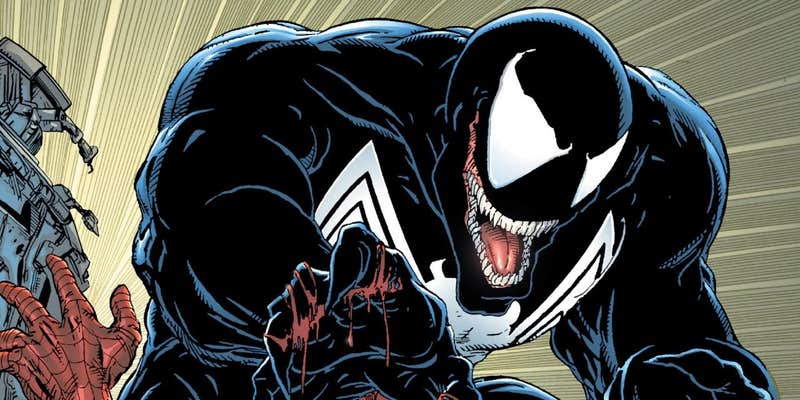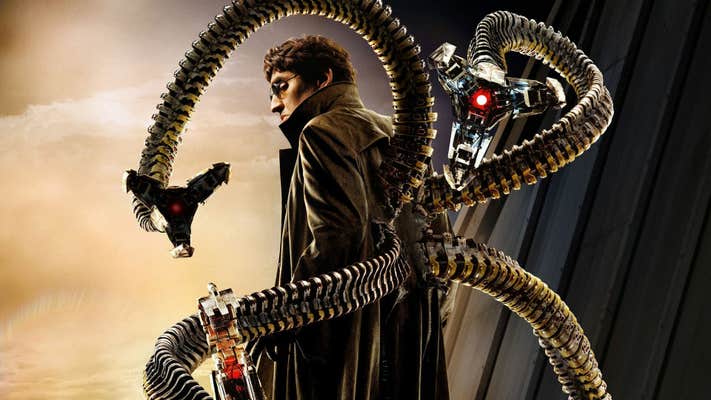Opinion
This article contains spoilers for Marvel’s Spider-Man.
It’s often said a hero is only as good as their best villain. Looking at popular comic book stories, it’s easy to see this sentiment replicated time after time. This year alone, we’ve seen fans rally around Infinity War’s Thanos and Black Panther’s Killmonger as some of their favorite comic book movie villains of all time.
Considering the popularity of edgy, darker superhero stories, the attention given to antagonists makes perfect sense. While traditionally colorful comic book characters can’t often descend into straight-up moral lapses, the right enemy can push them to their breaking point. How many times have Batman and the Joker pushed each other to the limit? How many of Captain America’s best stories focus on direct opposition to an authoritarian overlord? Why is it impossible to make a Fantastic Four movie without Doctor Doom?
When it comes to Spider-Man, identifying his iconic foil is a bit more complicated. While the Green Goblin is seen as the de facto bad guy by many, Venom represents a greater visual contrast and much more popular choice for the webslinger’s most fitting adversary.

Marvel’s Spider-Man, available now on PS4, does something different with Spidey’s deep gallery of rogues. All the marketing materials made it seem as if Mr. Negative, a relatively new addition to the comics, would be the player’s main opposition. While his explosive powers and visually distinct henchman certainly pad out the game with exciting action sequences, it is Peter’s mentor, Otto Octavius, who is responsible for the emotional crux of the story.
When Otto was revealed as Peter’s boss in one of the first missions, I knew without a doubt who the game’s final boss would be. I imagine many fans felt the same way. But the secret identity of Doctor Octopus isn’t intended to be a significant shock; it’s something players are meant to fear just as much as Spider-Man himself does.
Otto is a nervous, mild-mannered scientist when we meet him. He proudly toils away at Octavius Industries, working to advance physical augmentations for the disabled. This is his life’s work, and he would to sacrifice anything to see it through. And Peter Parker is right by his side the whole time.
Where Peter has been a journalist or student in most big-screen interpretations, his character was borne from a deep interest in science. The very first Spider-Man issue introduces a teenage Parker at work among beakers and measuring cups. It’s an aspect often overlooked by modern stories, but if he weren’t bitten by a radioactive spider, there’s a good chance Peter still could have changed the world as a groundbreaking researcher.

Spider-Man finds him juggling his responsibilities as both a superhero and a scientist. Since the game focuses on an experienced Spidey, Peter’s personal life is at a low. But where Aunt May could never scold him, and Mary Jane is comfortable to cut Peter out of her life for the most part, Otto doesn’t hesitate to chastise his assistant. As the hero’s primary father figure, Otto assumes the role of mentor and protector—and is seen as Peter’s moral center in many ways.
Their relationship makes the rise of Doctor Octopus even more heartbreaking. Mayor Osborn strips Octavius Industries of all its technology and funding, forcing the humble team to rebuild from the ground up. Around the same time, Otto confesses that he is slowly losing control of his body. Succumbing to disease, stripped of his passion project, disgraced: It’s natural for Doctor Octavius to fall into despair.
His bitten-by-a-radioactive-spider moment comes as he melds with his mechanical limbs. Otto is warned that his mind may be affected. But Otto pushes onward. His intentions were always noble, but they were twisted by a deep-rooted jealousy and long-held grudges. As Spider-Man works to clear the streets of criminal gangs, Doctor Octopus is somewhere offscreen, crafting a plan to form the Sinister Six and wreak havoc on New York City.
With Uncle Ben gone, Peter naturally finds comfort in his relationship with Otto Octavius. Otto grooms Pete’s prowess for research, pushes him to be better, and even offers support for the development of new Spider tools. Peter sees himself in Otto, or sees at least the man he wants to be. It makes Ock’s turn especially cruel, showing how easy it would be to corrupt everything Spider-Man does.
If Spider-Man is the best possible outcome of a smart kid with a heart of gold being gifted with one-of-a-kind abilities, Doc Ock is the exact opposite. A man driven criminally insane by the might of his own creation, his character represents the toxic ideology of the tech industry’s self-centered altruism. Sure, Doctor Octopus says he wants to change the world, but does he really just want recognition? Compare that to Spider-Man, who wears a mask while saving the city from countless threats and still works to make the world a better place as a civilian.
Doctor Octopus has been the center of some prominent Spider-Man stories before, including his excellent portrayal in Sam Raimi’s Spider-Man 2. He notoriously tried to marry Aunt May as a way to blackmail Peter, and even occupied his body for most of The Superior Spider-Man’s run. But this game is by far the best use of the character. By directly contrasting Peter with Otto, and Spider-Man with Doctor Octopus, we consider the cost of each character’s actions and recognize that Spidey’s inherent desire to do good is truly his greatest strength.
